
Epiphany is one of the most significant Christian festivals. It is a profound reminder of how God graciously reveals His salvation to humanity. Rooted in the Greek word "epiphaneia", meaning "appearance" or "manifestation", it holds a place of reverence and joy in the hearts of believers worldwide.
Epiphany is celebrated annually on either the 6th of January or the Sunday between the 2nd and 8th of January in selected countries. It carries rich symbolism and ancient tradition. Across various regions, it commemorates diverse aspects of Christ's life and ministry.
For some, it signifies the baptism of Jesus by John the Baptist in the River Jordan. For others, it marks the visit of the Magi, the wise men, to the infant Jesus, signifying God's magnificent revelation to the world. Additionally, this day echoes the wondrous birth of Jesus, a moment of unparalleled hope and divine love.
The Epiphany exudes a sense of reverence and holiness, reflected in its traditional colour of white, symbolising peace and purity. As people gather on this sacred occasion, they embrace the spirit of Epiphany, anticipating God's glorious revelation in our lives.
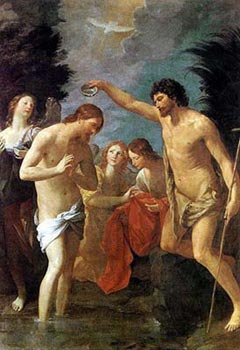
Catholicism places great importance on the rituals surrounding the life events of the Lord Jesus, from his birth to resurrection and death. Each detail is meticulously scrutinised and celebrated in its unique way. One such celebration is the Baptism of the Lord, a yearly event in January.
Originally observed through the Epiphany. This signified three Gospel events—the visit of the Magi to the infant Jesus, Jesus' baptism in the river Jordan, and the wedding at Cana. It’s where he performed his first miracle by turning water into wine. And the Magi became the focal point of the Epiphany.
In 1955, Pope Pius XII established a separate liturgical commemoration for the Baptism, celebrated on the 13th of January. However, Pope John XXIII and subsequently Pope Paul IV changed it to the first Sunday after the 6th of January (the Epiphany), or, if the Epiphany is celebrated on the 7th or 8th of January in a particular country, the following Monday. This feast marks the end of the Christmastide season and the beginning of Ordinary Time.
The Baptism of Christ may seem paradoxical. Baptism in Catholicism is traditionally for the remission of past sins, yet Christ was believed to be born without Original Sin. However, by humbling himself and seeking baptism from John the Baptist, Christ took on the sins of others. He provided his followers with a model to emulate.
It was not necessary for him but for humankind. After the Epiphany, which is seen as the "first manifestation" of the Lord, Baptism serves as the "second manifestation. This marks the beginning of Christ's public ministry.
This celebration serves as a testament to the profound significance of the Baptism of the Lord in Catholicism. This celebration highlights its symbolic importance and shaping the course of faith for millions worldwide.

Candlemas, also known as the Feast of the Presentation of our Lord Jesus and the Purification of the Blessed Virgin Mary. It is celebrated in various parts of the world with unique traditions and observances.
It is observed on February 2nd, 40 days after Christmas, when Mary brought Jesus to the Temple to be presented to God. One of the most popular observances of this day is the blessing of candles, which symbolises the light of Christ.
In some countries, people light candles at home or in churches, while in others, Candlemas is marked with elaborate processions and dances. Regardless of the form the observances may take, the day is a moment of spiritual reflection, commemoration, and the renewal of faith.

Valentine's Day is celebrated on February 14th every year worldwide. It is an intriguing holiday that has captivated both Western and Eastern cultures. While originally recognised as a Western tradition, this day of love now holds significant importance in countries like India and China.
The origins of Valentine's Day can be traced back to 496 AD when Pope Gelasius I incorporated it into the calendar. Although many martyrs named Valentine met their fate for various reasons, none were initially associated with love. It wasn't until the 14th century that a Valentine became linked to romantic love, thus giving rise to the tradition of Valentine's Day.
There are several theories surrounding the origin story of Valentine's Day. One popular belief is that it honours Saint Valentine. He defied the orders of Emperor Claudius II. The Emperor forbade young men from marrying, believing married soldiers were less effective.
However, Valentine rejected this decree and secretly assisted many couples in marriage. Consequently, the Emperor took decisive action, leading to the establishment of Valentine's Day.
Although predominantly celebrated in Western countries, Valentine's Day is gradually gaining recognition in other parts of the world. It is a day when lovers exchange heartfelt gifts and cards as expressions of their affection. Many clubs and venues host enchanting events featuring vibrant music, candlelight dinners, and romantic ambiences.
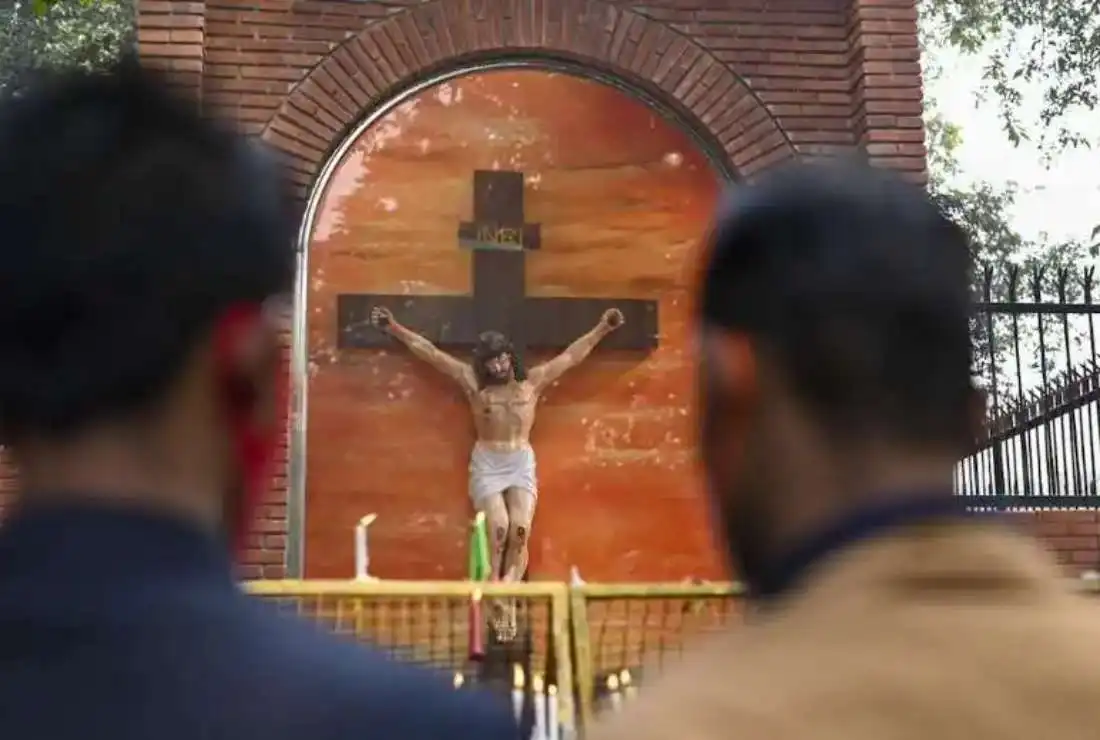
Ash Wednesday marks the start of Lent, a season of reflection and repentance for Christians. It falls forty-six days before Easter and is a solemn day of fasting and abstinence.
On Ash Wednesday, believers attend church services where they receive ashes in the sign of a cross on their forehead. It reminds them of their mortality and a call to turn away from sin. This ritualistic gesture is a symbol of humility and an acknowledgement of our dependence on God.
It is a call to action to lead a more compassionate, generous, and grateful life. Ash Wednesday is a powerful reminder to introspect, to ask for forgiveness, and to seek transformation.
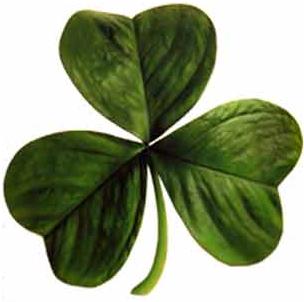
St. Patrick's Day is a festive public holiday in Canada. It is celebrated every year on March 17th or the closest Monday. This lively celebration pays tribute to St. Patrick, an Irish Saint who played a pivotal role in converting the people of Ireland to Christianity.
The roots of St. Patrick's Day celebrations in Canada can be traced back to 1759. A group of Irish soldiers fighting alongside the British army first marked the occasion. Legend has it that St. Patrick was born into a wealthy family. Later, he was captured and enslaved in his teenage years.
During his time in captivity, he found solace in religion and developed a deep reverence for God. Eventually, he escaped from his captors and reunited with his family. Later in life, St. Patrick returned to Ireland as a missionary. There, he helped spread the teachings of Christianity and is credited with driving out evil forces from the land, symbolised by the metaphorical "snakes."
Today, Irish immigrants and their descendants in Canada embrace St. Patrick's Day, particularly in Newfoundland, Labrador, and Montreal. The celebration takes on a vibrant atmosphere. Spirited street parades that draw huge crowds make the Montreal parade one of the longest and most highly attended in the world.
During this day, people enjoy drinks, feasting on traditional dishes like Colcannon (a delectable combination of cabbage and mashed potatoes), and savouring hearty Irish stew. St. Patrick's Day is a time for everyone to join in the merriment and celebrate the rich Irish heritage. It has become an integral part of Canadian culture.

Palm Sunday holds great significance in the Christian calendar as it marks the beginning of the Holy Week leading up to Easter. On this day, Jesus rode into Jerusalem on a humble donkey, as predicted in the Old Testament. The crowds recognised Him as the Messiah, waving palm branches and laying them on the path as a gesture of honour and praise.
However, as the week unfolded, the atmosphere shifted dramatically. One of Jesus' disciples, Judas Iscariot, betrayed Him. It set into motion a chain of events that would culminate in His crucifixion.
Today, Palm Sunday is commemorated with processions where faithful believers carry palms, willow, or olive branches. It symbolises the palm leaves strewn along Jesus' path. This day is known by various names - Branch Sunday, Passion Sunday, Flower Sunday, and Willow Sunday - evoking the diverse ways it is observed worldwide.
The history of Palm Sunday holds deep meaning and spirituality that continues to resonate with millions of Christians worldwide. It is a powerful reminder of the events leading up to Jesus' ultimate sacrifice for humanity's redemption.
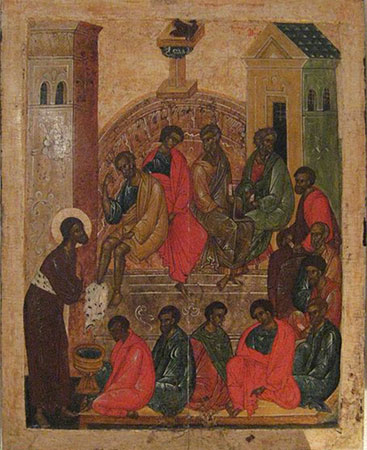
Maundy Thursday is a Christian festival celebrated worldwide. It holds a special place in the hearts of believers. On the Thursday before Easter, this revered day commemorates the Last Supper of Jesus Christ, which he shared with his disciples before his crucifixion.
"Maundy" originates from the word "mandatum," signifying the commandments given by Jesus on this day. Steeped in history, Maundy Thursday has been observed since medieval times. In the past, it was known as "Shere Thursday," symbolising freedom from guilt.
Christians once believed that penance on this day would cleanse their souls and bring forth purity. Baptism was also closely linked to Maundy Thursday, a connection still in certain parts of Europe.
The celebrations of Maundy Thursday vary across regions, generally adopting a solemn tone compared to Easter. It is a time for prayer and communal service. While some churches have departed from observing this day, many faithfully uphold its traditions.
Washing the feet of the elderly and the infirm is a prevalent tradition of Maundy Thursday, mirroring Jesus' act of humility according to the Bible. This act of service symbolises his love for humanity. Additionally, the communion service holds significance, as Jesus shared bread and wine with his disciples during the Last Supper.
Numerous churches organise mass communions on this auspicious day, feeding the poor, the elderly, and the sick. In certain parts of the world, such as England, unique customs like distributing purses to the less fortunate accompany the festivities. Maundy Thursday remains a cherished occasion for its traditions and embodiment of compassion.
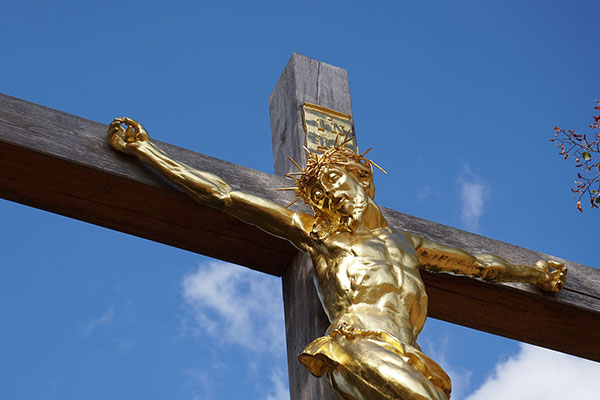
Good Friday is a solemn and significant day observed by Christians worldwide. It marks the crucifixion of Jesus Christ and his death at Calvary. Falling on the Friday before Easter Sunday, Good Friday is part of the Holy Week and is a time for reflection, prayer, and mourning.
Significance
Good Friday holds immense importance in Christianity as it commemorates the sacrificial death of Jesus. He is believed to have died for the sins of humanity. The day is also known as Holy Friday, Great Friday, and Great and Holy Friday. It is a sombre occasion, emphasising the suffering and ultimate sacrifice made by Jesus to redeem mankind.
Observances
On Good Friday, many Christian denominations hold solemn liturgical services. It includes reading the Passion narrative, prayers, hymns, and sermons reflecting on the events leading up to the crucifixion. Some churches may conduct the Stations of the Cross, a symbolic journey through the events of Good Friday, marking key moments in Jesus' last hours.
Fasting and Abstinence
In various Christian traditions, believers observe Good Friday with fasting and abstinence. This practice symbolises solidarity with Jesus in his suffering. It reflects on the discipline of self-denial. It is a time for Christians to contemplate the significance of the crucifixion and its impact on their faith.
Symbols
The cross, representing the crucifixion, is the most recognisable symbol associated with Good Friday. Many Christians wear black or dark-coloured clothing on this day as a sign of mourning. Some churches may drape the crosses and other religious symbols in black or purple cloth to symbolise the grief and sorrow of the occasion.
Reflection and Meditation
Good Friday encourages believers to reflect on the spiritual and emotional aspects of Jesus' sacrifice. Many people pray and meditate, contemplating the profound love and mercy for Jesus' death on the cross. It's a time to consider the significance of redemption and the hope Easter Sunday brings.
Global Observance
Good Friday is observed with various customs and traditions across the globe. In some countries, public services and processions are held to commemorate the day. Additionally, it is common for businesses and schools to close in predominantly Christian regions. It allows individuals to participate in religious observances.
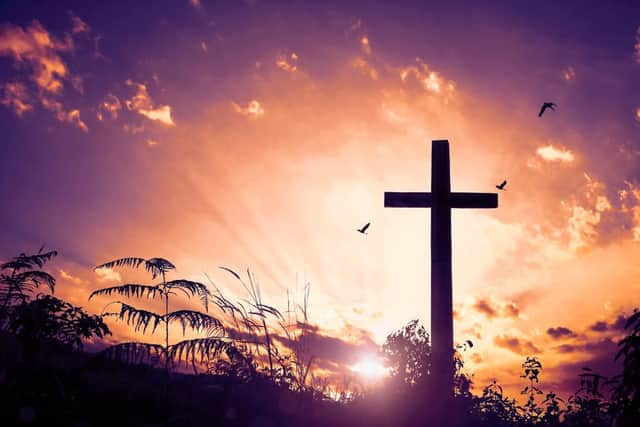
Easter Monday is the day after Easter Sunday. It is a holiday that many countries celebrate around the globe. It is a day to reflect on the message of hope and new beginnings that Easter symbolises.
Different regions have unique ways of observing Easter Monday. In some places, there are water-related customs, such as dousing people with water or engaging in water fights, symbolising purification and cleansing. These diverse traditions add rich layers to the global tapestry of Easter celebrations.
While some cultures may observe the day with religious traditions, others celebrate with lively festivities such as picnics, egg hunts, and parades. Whether with a quiet family dinner or a community gathering, Easter Monday is a special day that reminds us of the power of unity and joy.
Easter Monday, like Easter Sunday, symbolises renewal and hope. It serves as a reminder that each day brings new opportunities for growth and positive change. Whether through religious observance, cultural traditions, or festive activities, the day encapsulates the spirit of rejuvenation central to the Easter season.
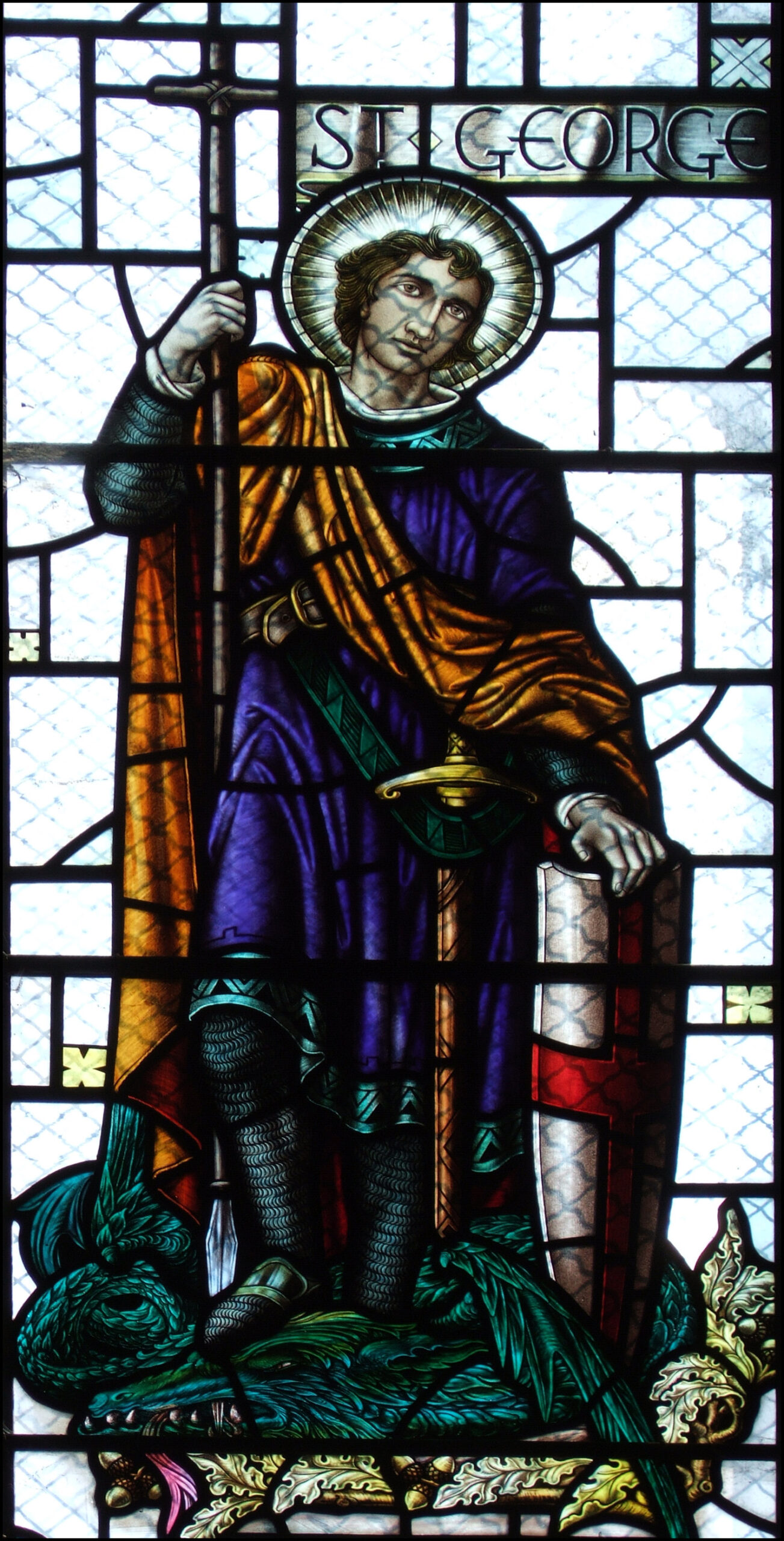
St. George's Day, observed annually on April 23rd, is a significant cultural and historical celebration in England. This day pays homage to Saint George, the patron saint of England, renowned for his legendary valour and chivalry. The occasion allows the English to reflect on their heritage, embrace national pride, and participate in various festivities.
Historical Significance
St. George is believed to have been a Roman soldier who lived in the 3rd century. The most famous tale associated with him is the slaying of a dragon, symbolising the triumph of good over evil. Over time, St. George became a symbol of courage, honour, and national identity. It led to his eventual designation as England's patron saint.
Traditions and Customs
The iconic red and white St. George's Cross flag is proudly displayed across the country on St. George's Day. Many people also wear a red rose, another symbol of St. George, as a mark of solidarity. Traditional English foods, including roast beef and Yorkshire pudding, often grace the dinner tables on this special day.
Parades, reenactments, and medieval-themed events are common throughout England. It provides communities with opportunities to come together and celebrate their shared history. The day is also marked by religious services, with churches honouring St. George through prayers and special ceremonies.
Cultural Celebrations
St. George's Day is a time for historical reflection and an occasion to celebrate contemporary English culture. Local festivals, markets, and art exhibitions showcase the diverse talents and creativity of the English people. Traditional folk music, dance, and theatre performances add a festive atmosphere to the celebrations.
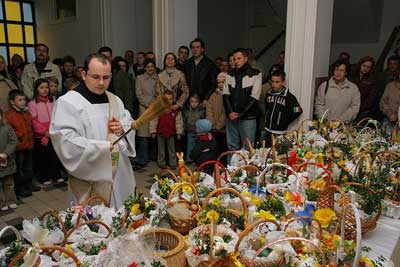
Easter, a joyous and significant Christian celebration, marks the resurrection of Jesus Christ from the dead. It is a time of renewal, hope, and the arrival of spring. Celebrated worldwide, Easter brings together various traditions, symbols, and festivities that embody the spirit of rebirth and new beginnings.
Religious Significance
Easter holds paramount religious importance for Christians. It symbolises the triumph of life over death. The resurrection of Jesus Christ is commemorated on Easter Sunday, following the sad period of Lent and the observance of Good Friday. Many attend church services, participate in prayer, and reflect on the spiritual significance of this holy day.
Easter Traditions
Symbols of Easter
Easter Feast
Easter is also a time for delicious feasts and special meals. Families share traditional dishes, including lamb, ham, hot cross buns, and various springtime vegetables. Desserts often feature sweet treats like chocolate eggs and Easter-themed cakes.
Easter in Different Cultures
While the religious significance remains constant, how Easter is celebrated varies across cultures. For example, Greece has elaborate church services and festive family gatherings. Semana Santa (Holy Week) processions are a significant part of Easter traditions in Spain.
Easter and Springtime Festivities
Easter's arrival aligns with spring blossoming, symbolising renewal and growth. Many people celebrate by participating in outdoor activities, such as Easter egg hunts, picnics, etc.
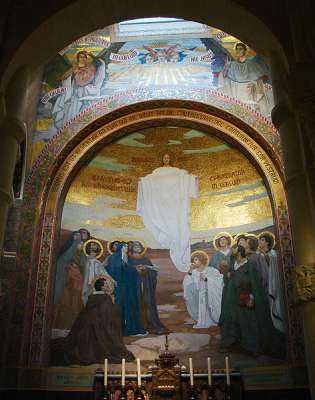
Ascension Day is also known as the Feast of Ascension. This day holds great significance as one of the important Christian festivals celebrated worldwide. It commemorates the final appearance of Jesus Christ to his followers after his resurrection on Easter.
Taking place exactly 40 days after Easter, Ascension Day falls on a Thursday. "Ascension" derives from biblical accounts describing Jesus being taken into heaven, ascending beyond mortal realms. This day is a joyful celebration of Jesus' kingship.
According to belief, during the 40 days post-resurrection, Jesus appeared to many of his disciples. He comforted them, assuring them of his eternal presence and promising the gift of the Holy Spirit.
With these words, Jesus ascended into heaven, taking his rightful place at the right hand of God. This remarkable event portrays the divine majesty and everlasting power of Jesus Christ.
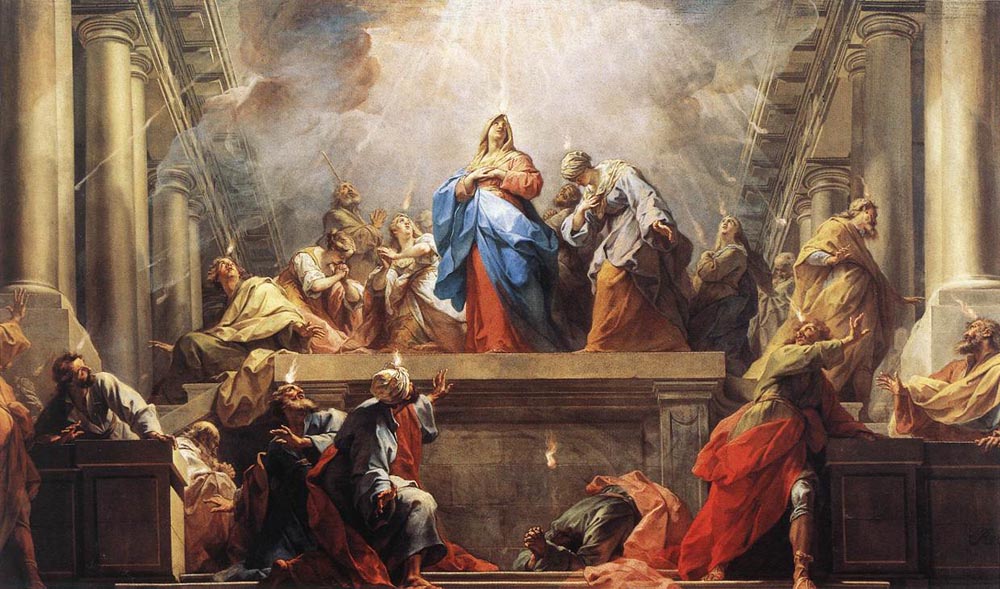
Pentecost is also known as Whit Sunday or Whitsun. It holds a significant place in the Christian calendar. It marks the descent of the Holy Spirit upon the apostles and other followers of Jesus Christ. This sacred event is celebrated with joy and reverence, symbolising the birth of the Christian Church and the empowerment of believers with the divine presence.
Symbolism and Significance
Pentecost is rich in symbolism, representing the transformative power of the Holy Spirit. The flames of fire signify purification and enlightenment. The gift of speaking in tongues exemplifies the universal nature of the Gospel, meant for people of all nations. The event also serves as a bridge between the Old and New Testaments. It connects the covenant of Moses with the new covenant through Jesus Christ.
The Birth of the Church
Pentecost marks the inception of the Christian Church. The outpouring of the Holy Spirit empowered the apostles to proclaim the message of Jesus boldly. It led to the conversion of thousands on that day. As a community of believers, the Church was established due to this divine encounter. It laid the foundation for the spread of Christianity across the world.
Celebrations and Traditions
Christian communities around the globe commemorate Pentecost with various traditions and customs. Special church services, prayer vigils, and reading relevant scripture passages are common practices. The colour red, symbolising the flames of the Holy Spirit, is often prominent in decorations and clergy attire during Pentecost celebrations.
Pentecost serves as a time for personal reflection and spiritual renewal for believers. It is an opportunity to seek the guidance and empowerment of the Holy Spirit in one's life. It fosters a deeper connection with God and a renewed commitment to living out the teachings of Jesus Christ.
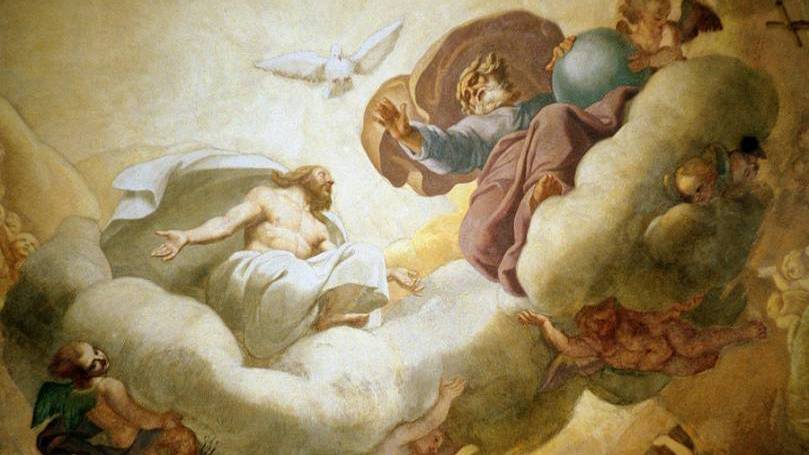
Trinity Sunday is a significant celebration of the Christian faith. It pays tribute to the threefold nature of God: the Father, the Son, and the Holy Spirit. It takes place on the first Sunday after Pentecost, and it's a time for reflection, contemplation, and appreciation.
For many Christians, it's a reminder of the depth and complexity of God's love and grace. Trinity Sunday is a beautiful opportunity to pause and meditate on the mystery of the Holy Trinity, a fundamental doctrine at the heart of Christianity.
Understanding the Holy Trinity has practical implications for Christian living. As believers, we are called to strive to understand and cherish this essence of God's nature, which defines our faith, informs our beliefs, and inspires our actions.
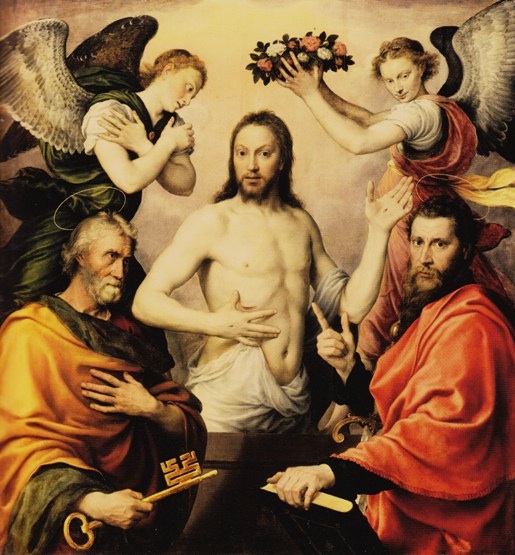
The Feast of Saints Peter and Paul is celebrated on June 29th. It is a significant and revered occasion in the Christian calendar. This feast commemorates the martyrdom of two key figures in early Christianity—Saints Peter and Paul. Both apostles played instrumental roles in spreading the teachings of Jesus Christ and laying the foundation for the Christian Church.
Saint Peter, often called the "Rock" upon which the Church was built, was one of Jesus' twelve disciples and a prominent leader among the apostles. According to Christian tradition, Peter was crucified in Rome during the persecution of Christians under the Roman Emperor Nero. The Feast of Saints Peter and Paul honours Peter's unwavering faith and his role as a leader in the early Christian community.
The joint celebration of Saints Peter and Paul highlights the unity within the early Christian Church. Despite their different backgrounds and approaches, both apostles contributed significantly to the growth and establishment of Christianity. Their martyrdoms are seen as a testament to their commitment to their faith. It also shows their willingness to endure hardship to spread the Gospel.
Beyond its religious significance, the feast also allows Christians to celebrate their faith's rich history. It draws inspiration from the examples set by Saints Peter and Paul. It encourages believers to embody the virtues of faith, courage, and dedication in their spiritual journeys.
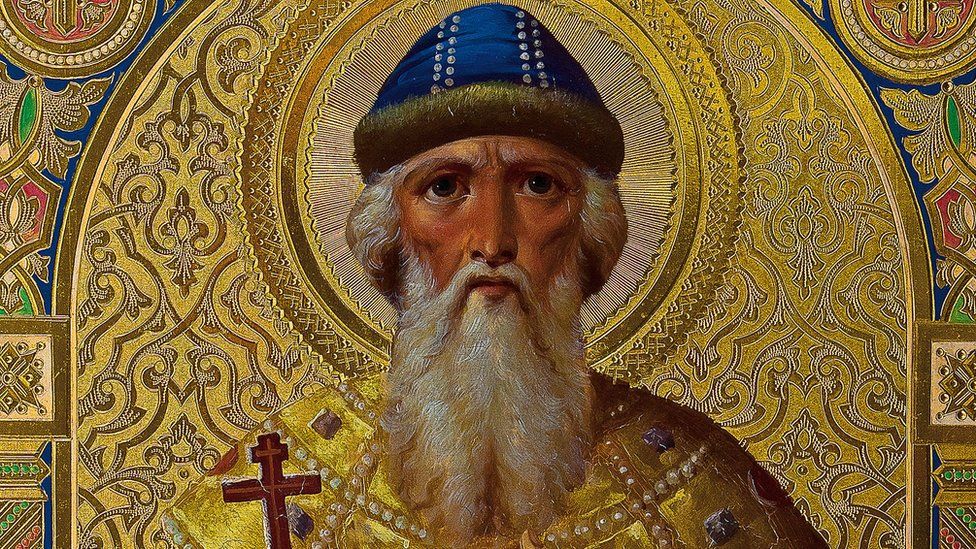
Saint Vladimir Day is an important religious holiday celebrated annually on July 15th. It commemorates the life and legacy of Saint Vladimir the Great. He was a grand prince of Kievan Rus in the 10th century.
Despite his reputation as a ruthless and bloodthirsty ruler, Saint Vladimir is widely revered for his role in spreading Christianity throughout his kingdom. He's also known for his promotion of cultural and educational reforms.
On this day, people gather in churches across Eastern Europe to pay tribute to Saint Vladimir's lasting impact on their region's history and identity. By honouring his memory, they also celebrate their spiritual roots and traditions.
Saint Vladimir Day is observed with religious services, processions, and cultural events across Orthodox Christian communities. Churches pay homage to the saint through special prayers and services. Believers gather to celebrate the Christian heritage that Saint Vladimir helped establish. The day is an occasion for reflection on the role of faith in shaping the identity of the Slavic people.
Beyond its religious significance, Saint Vladimir Day has become a symbol of unity and cultural pride for the people of Russia and Ukraine. Folklore, music, and art often pay tribute to the legacy of Saint Vladimir.
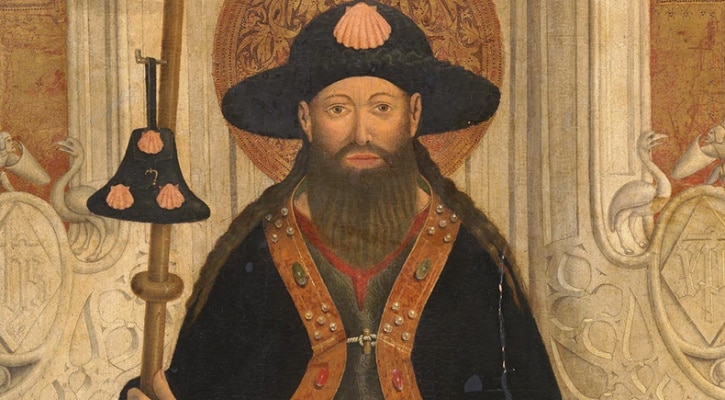
St. James the Great Day is a celebration held annually on July 25th. It's a day when Christians honor and remember one of the twelve apostles of Jesus.
St. James was known for his strong faith and devotion, and his teachings continue to inspire individuals today. This day is celebrated in many countries with parades, processions, and special masses. It's a time for people to come together and celebrate the life and teachings of St. James and the power of faith and community.
St. James's life inspires Christians worldwide, symbolising the call to discipleship and the transformative power of faith. His martyrdom is traditionally believed to have occurred in AD 44.
On St. James the Great Day, believers often participate in special church services, prayers, and reflections. It highlights the apostle's contributions to the early Christian community. Pilgrims may also embark on journeys to visit St. James' shrine. Many engage in acts of charity and goodwill, honouring his compassionate and selfless example.

Lammas is also known as Lughnasadh. It is a festival with ancient roots that celebrates the year's first harvest. Typically observed on August 1st in the Northern Hemisphere, Lammas is halfway between the summer solstice and the autumn equinox. This festival originates in Celtic and pagan traditions.
Origins and History:
Lammas has its roots in the Gaelic festival of Lughnasadh, named after the Celtic god Lugh. Lugh was associated with skills such as craftsmanship, agriculture, and the arts. The festival was a time to pay homage to Lugh, give thanks for the bountiful harvest, and engage in various competitions and festivities.
Agricultural Significance:
Lammas is closely tied to agriculture and the seasonal cycle. It symbolises the first fruits of the harvest, such as grains and fruits. Farmers and communities would gather to give thanks for crops' successful growth and seek blessings for the remainder of the harvest season.
Rituals and Traditions:
Traditionally, Lammas was marked by various rituals and customs. One common practice was making corn dollies, intricately woven figures made from the last sheaves of wheat or other grains. These dollies were often used as talismans to ensure a good harvest for the following year.
Feasting and Celebrations:
Feasting plays a significant role in Lamma's celebrations. Communities would come together to share the fruits of their labor. They enjoy freshly harvested produce and baked goods from the newly collected grains. The communal aspect of the festival fosters a sense of unity and gratitude among participants.
Modern Observance:
While Lammas has ancient origins, it has found its place in modern pagan and Wiccan traditions. Many contemporary practitioners celebrate Lammas by acknowledging the cycles of nature. They gratitude for the abundance in their lives and perform rituals that connect them to the earth and its seasonal changes.
Whether observed through traditional rituals or modern interpretations, Lammas remains a time-honored acknowledgment of the harvest and the cyclical nature of life.
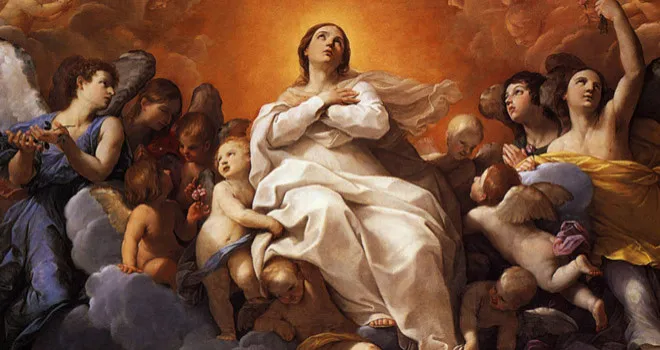
The Assumption of Mary is a cherished Christian festival celebrated worldwide on the 15th of August each year. On this day, Christians believe that the Virgin Mary, having completed her earthly journey, ascended into heavenly glory—body and soul united.
Across ancient cultures, The Assumption of Mary was marked with public illuminations and nighttime bonfires. In some regions, people would toss coins from their windows to symbolise prosperity into the streets below.
Numerous symbolic images and pictures are associated with this event. Blue, representing heaven, truth, and clarity, profoundly connects with the Virgin Mary. Moreover, the Lily, embodying purity, simplicity, and divinity, is predominantly associated with her.
Various countries celebrate The Assumption of Mary in unique ways. The Christian community worldwide marks the Assumption of Mary with diverse traditions and customs. It showcases love, harmony, and reverence for this sacred festival.
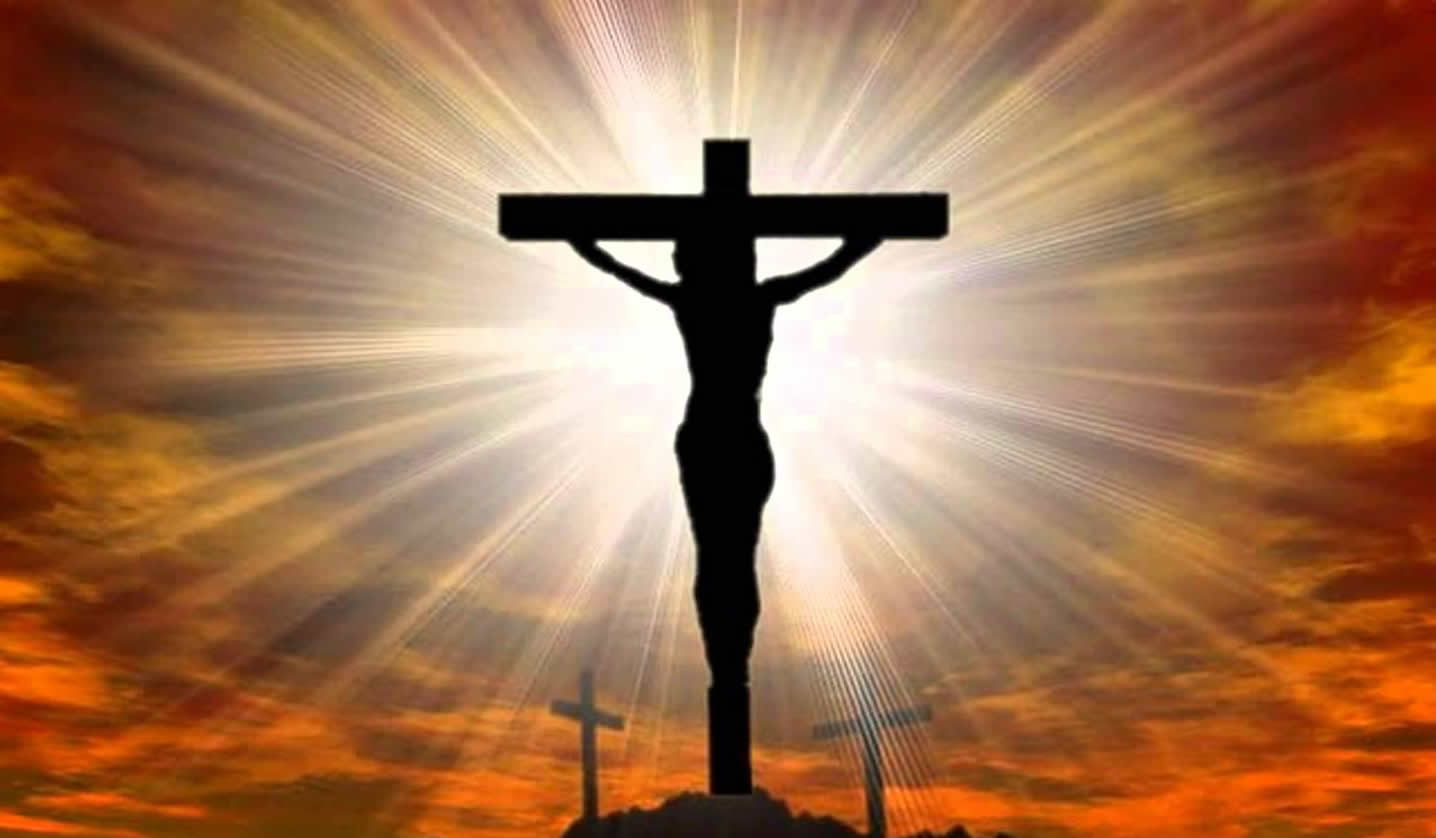
Holy Cross Day is a Christian religious holiday celebrated every year on September 14th. It commemorates the discovery of the True Cross by Saint Helena, the mother of Emperor Constantine the Great, in Jerusalem in the early 4th century. The True Cross is believed to be the actual cross upon which Jesus Christ was crucified.
Observance of Holy Cross Day
On Holy Cross Day, Christian communities gather for special church services, prayers, and processions. Many churches display the cross prominently, adorned with flowers and candles. The faithful reflect on the significance of the cross in their spiritual journey, contemplating the profound message of salvation and forgiveness it conveys.
Global Observance
This celebration is not confined to a particular denomination or region. Christians worldwide, whether Roman Catholic, Orthodox, or Protestant, come together to mark Holy Cross Day. The universality of the celebration underscores the cross's unifying symbol that transcends denominational boundaries.
On Holy Cross Day, Christians worldwide venerate the Holy Cross as a symbol of Jesus' ultimate sacrifice for humanity. This day is a time for Christians to reflect on their faith and remember the power of the cross in their lives. It is a day of prayer, thanksgiving, and spiritual renewal for believers from all Christian denominations.
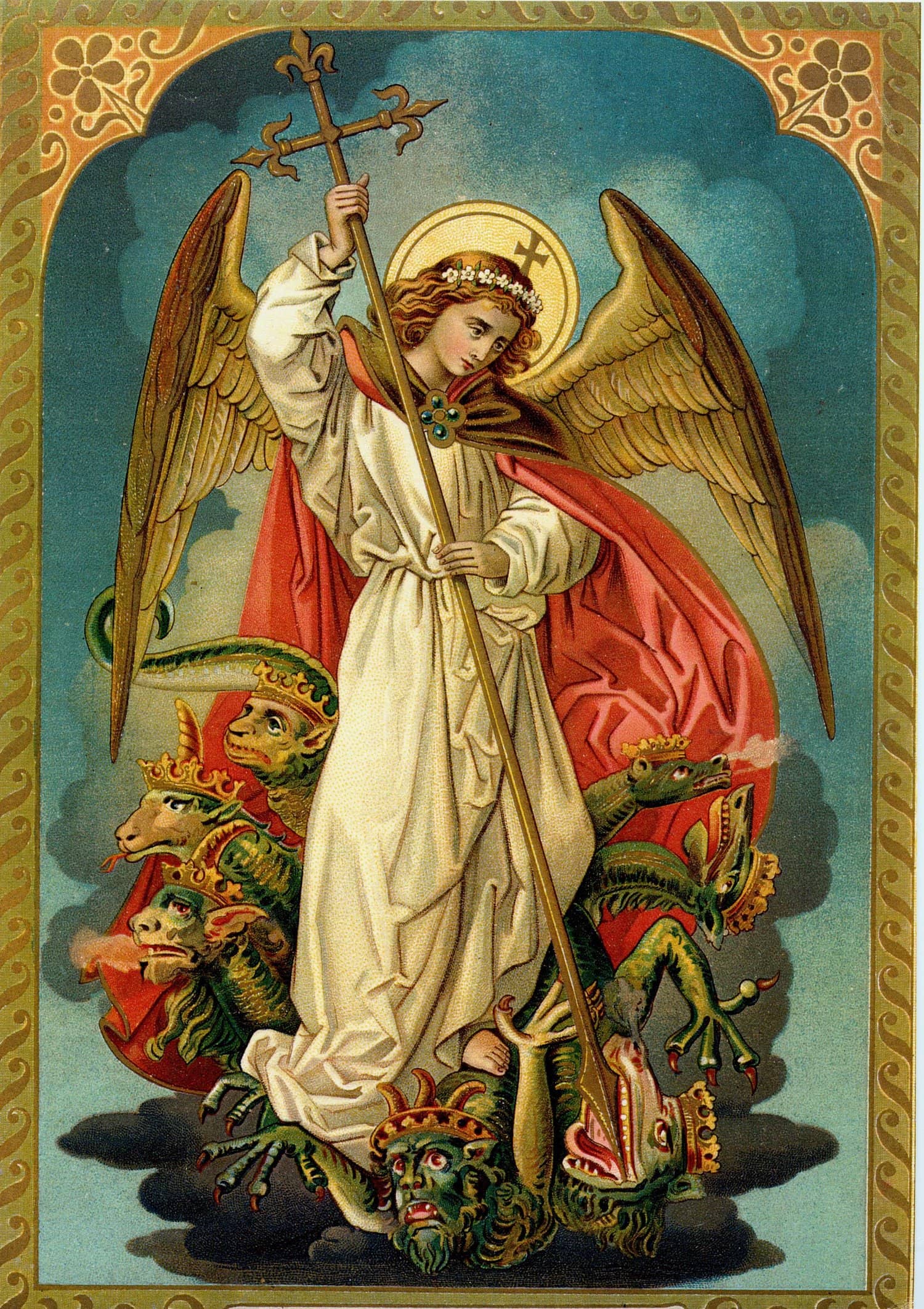
Michaelmas is a fascinating celebration with a rich history. This religious holiday, commemorated on the 29th of September each year, is celebrated by Christians worldwide.
It marks the feast of Saint Michael the Archangel, one of the most revered figures in Christian lore. Saint Michael is known for his courage, strength, and role as humanity's protector. His feast day is a reminder of the importance of bravery in the face of adversity. It also symbolises the power of faith to overcome challenges.
Whether you're religious or not, Michaelmas is a wonderful opportunity to reflect on these themes and celebrate the resilience of the human spirit.
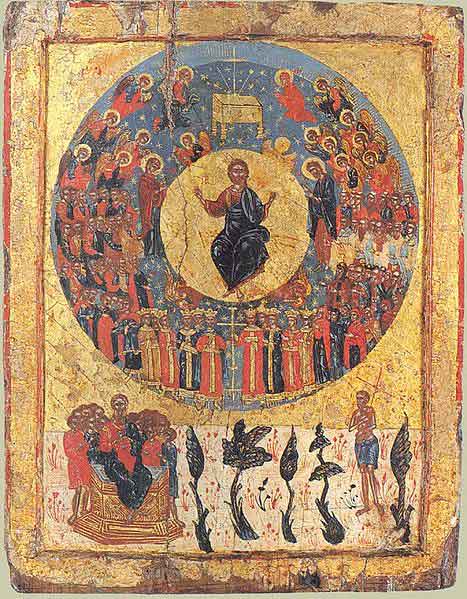
All Saints' Day is observed on November 1st in many Christian traditions. It is a solemn occasion that honors all the saints, known and unknown. This day is significant in the liturgical calendar as a time for believers. It allows you to reflect on the lives of those who have exemplified extraordinary holiness and devotion to God.
Historical Background
The origin of All Saints' Day can be traced back to the early Christian era when the persecution of Christians was widespread. Initially celebrated on different dates by various Christian communities, Pope Gregory III, in the eighth century, designated November 1st as a universal day to honor all saints.
This date was chosen to coincide with the Celtic festival of Samhain. It marks the beginning of winter. It’s considered a time when the boundary between the living and the dead was believed to be thin.
Significance and Observance
All Saints' Day is a remembrance, gratitude, and celebration. It serves as a reminder of the countless men and women who, through their exemplary lives, have become beacons of faith and virtue. While the Church formally recognises some saints, All Saints' Day acknowledges those who may not have been canonized but are considered holy.
In various Christian denominations, this day is marked by special church services. Believers attend Mass to honor the saints. They seek inspiration from their spiritual journeys. Many also visit cemeteries to remember and pray for their departed loved ones.
Symbols and Traditions
Symbolic of the light of faith, Candles are often lit in churches and homes during All Saints' Day services. Saints' images and icons may be displayed, emphasising the diverse individuals. In some cultures, offerings of flowers and food are placed on the graves of departed loved ones.
All Saints' Day is a time for Christians to reflect on the spiritual legacies left by those who have gone before them. In commemorating All Saints' Day, the Christian community finds unity in its diversity and a shared commitment to the pursuit of sanctity.
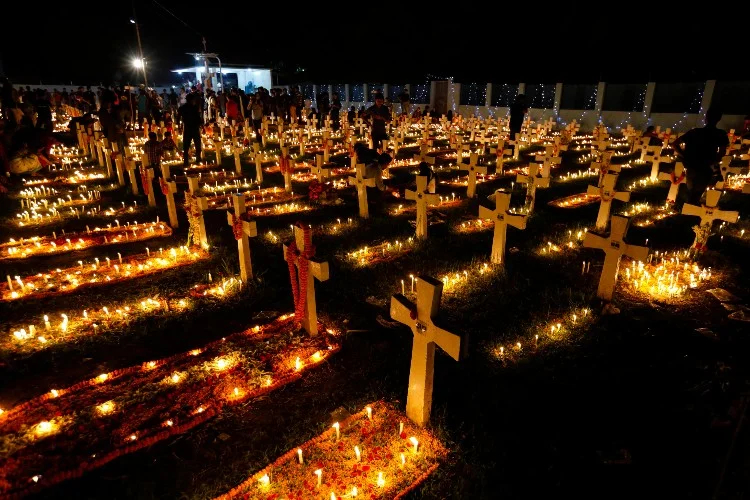
All Souls' Day, observed on November 2nd, is a solemn occasion in many cultures worldwide. This day holds deep significance for those who follow Christian traditions, particularly within the Roman Catholic Church. It is a time to remember and pray for the souls of departed loved ones. They seek solace in believing that the departed souls may find peace and eternal rest through prayer.
Origins and Significance
The origins of All Souls' Day can be traced back to the early Christian traditions and the commemoration of the departed souls. The day is closely associated with All Saints' Day, observed on November 1st. All Souls' Day extends this remembrance to all the faithful departed. It acknowledges the souls in purgatory who are believed to be undergoing purification before entering heaven.
Customs and Traditions
Many people visit cemeteries on All Souls' Day to pay their respects to the departed souls. It is common to clean and decorate the graves of loved ones with flowers, candles, and symbolic items. The atmosphere is reflection and prayer as families gather to remember those who have passed away. In some cultures, there are also traditions of preparing special foods and sharing meals in memory of the departed.
All Souls' Day encourages a sense of continuity and connection between the living and the departed. It serves as a reminder that the impact of our loved ones endures beyond their physical presence. By remembering and praying for their souls, we honor their memory and contribute to the spiritual journey they may be on.

The Feast of Christ the King is also known as the Solemnity of Our Lord Jesus Christ, King of the Universe. It is a significant liturgical celebration in the Christian calendar. This feast was established by Pope Pius XI in 1925. It serves as a powerful reminder of the sovereignty of Christ over all creation. It is observed on the last Sunday of the liturgical year, just before the season of Advent begins.
The concept of Christ as the King is deeply rooted in the Bible. The feast draws inspiration from passages such as Matthew 25:31-46. It’s where Jesus speaks about the final judgment and his role as the shepherd separating the sheep from the goats. The Gospel of John also portrays Jesus as the Word made flesh and the ruler of all creation.
Special liturgical celebrations in Christian churches mark the Feast of Christ the King. These may include processions, solemn Masses, and the recitation of prayers emphasising Christ's kingship. The liturgical colors of the day, often gold or white, symbolize the majesty and glory associated with Christ's reign.
The Feast of Christ the King holds social significance. It reminds Christians of their responsibility to contribute positively to society. Christ's kingship, as celebrated on this day, calls for acts of kindness, justice, and compassion towards others. It encourages believers to engage in social justice initiatives and promote values that reflect the teachings of Christ in their communities.
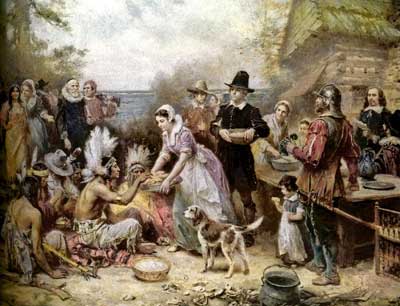
Thanksgiving Day is celebrated primarily in the United States and Canada. It is traditionally observed on the fourth Thursday of November in the U.S. and the second Monday of October in Canada. It is a time for people to express gratitude for their blessings and good fortune.
Historical Origin
Thanksgiving has its roots in the early 17th century when Pilgrims and English Puritans settled in Plymouth, Massachusetts. They celebrated a bountiful harvest with the Wampanoag Native Americans in 1621. The event is often considered the first Thanksgiving, symbolising cooperation and goodwill between the settlers and indigenous people.
Traditional Feast
Central to the modern celebration of Thanksgiving is the traditional feast. Families and friends gather for a festive meal that typically includes a roast turkey, stuffing, mashed potatoes, cranberry sauce, and pumpkin pie. The meal symbolises abundance and reflects the ingredients likely present at the original Pilgrim feast.
Volunteerism and Charity
In the spirit of giving, many individuals and communities engage in volunteer activities and charitable initiatives during Thanksgiving. Some people donate food to needy people, while others volunteer at shelters or participate in community events to spread kindness.
Modern Celebrations
While rooted in historical traditions, Thanksgiving has evolved over time to accommodate various cultural influences. Some families incorporate unique customs, and the feast may include diverse dishes to reflect multicultural backgrounds.
Thanksgiving Day is a time for reflection, appreciation, and coming together with loved ones. It encapsulates the spirit of gratitude and unity, emphasizing the importance of acknowledging the positive aspects of life amid the challenges that may arise.
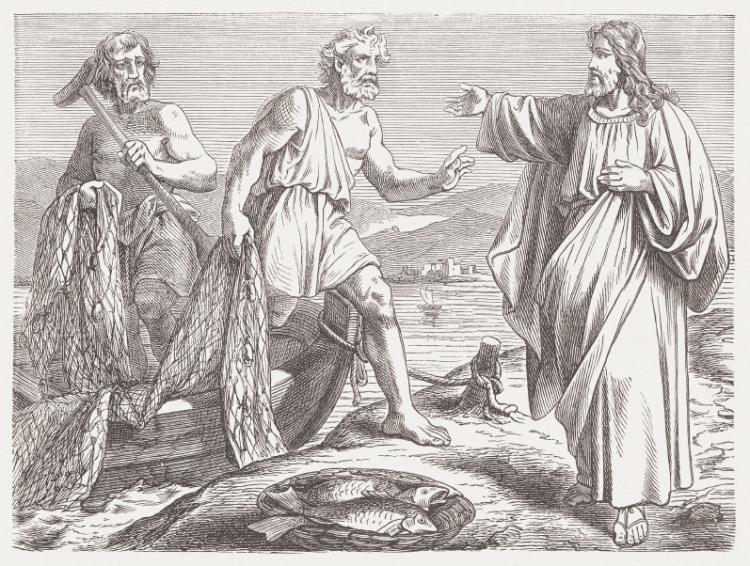
St. Andrew's Day is a significant cultural and religious celebration observed on November 30th each year. It is primarily associated with the patron saint of Scotland, Saint Andrew. It is widely celebrated in Scotland and among Scottish communities around the world. St. Andrew is also the patron saint of Greece, Russia, and Romania.
Origins and History
St. Andrew was one of the twelve apostles and the brother of Saint Peter. According to Christian tradition, he was crucified on an X-shaped cross. It’s now known as the Saint Andrew's Cross, featured on the Scottish flag. The day is dedicated to honoring his life and contributions to Christianity.
Celebration in Scotland
St. Andrew's Day is a national holiday marked by various events and festivities in Scotland. Traditional activities include ceilidh dancing, music concerts, and feasts. Many people choose to wear the national tartan or blue and white attire, reflecting the colors of the Scottish flag. In some areas, some parades and processions showcase the rich cultural heritage of Scotland.
Global Celebrations
St. Andrew's Day is celebrated in Scotland and by Scottish communities worldwide. In other countries, people of Scottish descent often organise events to mark the occasion. This helps maintain a strong sense of identity and connection to their heritage.
Traditions and Customs
Many customs are associated with St. Andrew's Day, such as the lighting of bonfires and the singing of traditional Scottish songs. Additionally, some people attend church services to pay homage to the saint. It is also a common practice to give to charity and engage in acts of kindness on this day.
St. Andrew's Day is a special occasion that holds cultural, religious, and historical significance for the people of Scotland and those with Scottish heritage. It provides a unique opportunity to celebrate the nation's identity, showcase its traditions, and foster a sense of community.
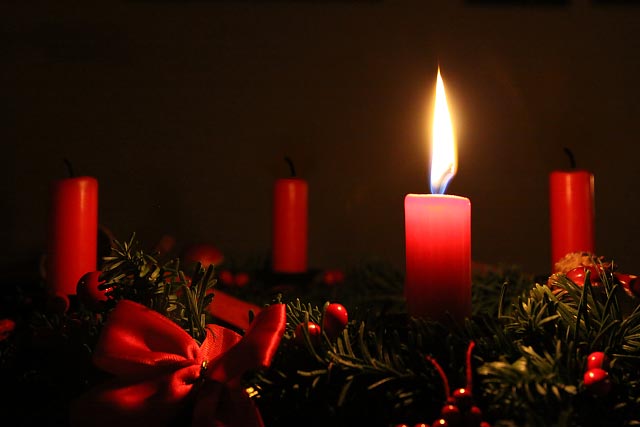
Advent Sunday marks the beginning of the Advent season. It is a time of anticipation and preparation to celebrate the birth of Jesus Christ. This observance varies slightly among Christian denominations but generally falls on the fourth Sunday before Christmas Day. Advent Sunday is a significant and symbolic start to the Advent season, which typically spans four weeks.
Symbolic Meaning
Advent, derived from the Latin word "adventus," means "coming" or "arrival." It symbolises the anticipation of the coming of Jesus Christ, both as a baby in Bethlehem and in the future as the promised Messiah.
Advent Wreath
One of the most recognisable symbols of Advent is the Advent wreath. It typically consists of a circular wreath with four candles, often three purple (or violet) candles and one pink (or rose) candle. Each candle represents a week of Advent, with one candle lit each Sunday leading up to Christmas.
Countdown to Christmas
Advent is a time of reflection, prayer, and preparation for the celebration of Christmas. Many people use Advent calendars to count down the days until Christmas. Each day is marked by a small door or window that reveals a scripture verse, prayer, or a small gift.
Spiritual Reflection
Beyond the festive decorations and countdown, Advent is a season for spiritual reflection. It encourages believers to prepare their hearts for Christmas's true meaning and deepen their relationship with God through prayer, repentance, and acts of kindness.
The Advent season encourages believers to focus on the virtues of hope, peace, joy, and love as they prepare to celebrate the miracle of Christmas.

Saint Nicholas Day, celebrated on December 6th, is a tradition in many countries worldwide. This day honors Saint Nicholas, the patron saint of children, sailors, and merchants, known for his acts of kindness and generosity. The celebration of Saint Nicholas Day varies across cultures, but it consistently emphasises the spirit of giving and compassion.
The Legend of Saint Nicholas
Saint Nicholas was born in the 3rd century in what is now Turkey. He was a Christian bishop known for his selfless acts of kindness. One of the most famous stories recounts how he secretly provided dowries for three impoverished sisters, dropping bags of gold coins through their windows to save them from poverty. This act of generosity forms the basis of the modern-day tradition of gift-giving on Saint Nicholas Day.
Traditions and Customs
The customs associated with Saint Nicholas Day differ from country to country, but some elements remain consistent. In many places, children leave their shoes out on the evening of December 5th, hoping to find them filled with small gifts, sweets, and coins the next morning. This symbolic act is a reminder of Saint Nicholas' generosity and concern for children's well-being.
In some regions, Saint Nicholas himself visits homes or public spaces on the eve of his feast day. Dressed in traditional bishop's attire, he interacts with children, listens to their wishes, and distributes small gifts. This jolly figure is often accompanied by his helper, commonly known as "Zwarte Piet" or "Krampus," depending on the cultural context.
Saint Nicholas Day reminds us of the importance of generosity, kindness, and compassion. The celebration of this day, with its rich history and diverse traditions, fosters a sense of community and goodwill. As families and communities come together to honour Saint Nicholas, the spirit of giving and selflessness inspires people worldwide.

Christmas Eve is a night filled with enchantment and anticipation. It holds a special place in the hearts of people around the world. Families and communities celebrate this cherished evening, setting the stage for the joyous festivities that follow on Christmas Day.
Traditions and Customs
Christmas Eve is marked by a tapestry of traditions and customs that vary across cultures and regions. Families gather for a festive dinner in many households, exchanging laughter and stories as they share a meal.
Some traditions involve attending midnight Mass, a solemn and joyous occasion that symbolizes the birth of Christ. In other parts of the world, lighting candles, singing carols, or even participating in a countdown to midnight are common practices.
Global Celebrations
While Christmas Eve is celebrated in diverse ways, the underlying theme remains universal—a time for love, joy, and togetherness. Whether it's the bustling streets of New York City or the serene villages of England, the magic of Christmas Eve unites people.
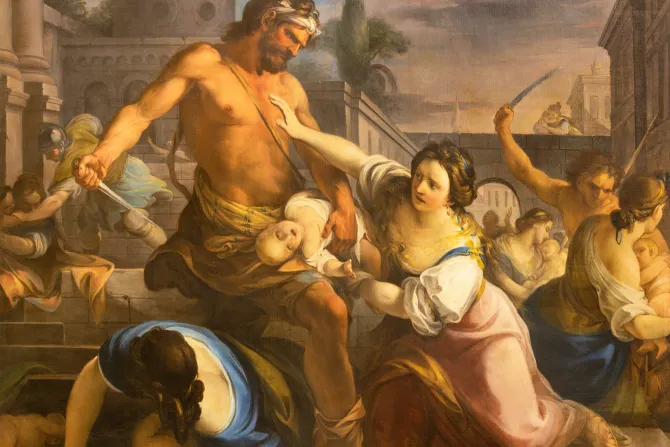
Holy Innocents' Day is also known as the Feast of the Holy Innocents. It is observed on December 28th in the Western Christian calendar. This day commemorates the massacre of male infants in Bethlehem by King Herod, as recounted in the Gospel of Matthew. The event is a poignant reminder of the vulnerability of the innocent and the brutal consequences of unchecked power.
Biblical Background
The biblical narrative is found in the Gospel of Matthew. It’s where King Herod, fearing the birth of a potential rival, orders the massacre of all male infants under the age of two in Bethlehem. The Holy Family, warned by an angel, escapes to Egypt, fulfilling the prophecy in Jeremiah 31:15.
Contemporary Reflection
Holy Innocents' Day serves as a reminder to contemporary society about the vulnerability of children and the consequences of power abuse. It prompts reflection on the plight of innocent victims in a world marked by violence, injustice, and political machinations.
In commemorating Holy Innocents' Day, Christians not only remember a historical atrocity but also strive to bring attention to the ongoing struggles of innocent victims in the world. They promote a message of compassion, justice, and protection for the vulnerable.

Watchnight service, often held on New Year's Eve, is a time-honored tradition observed by various religious communities worldwide. This special gathering has deep significance. It marks the transition from the old year to the new one with reflections, prayers, and anticipation for the possibilities ahead.
Origins
The roots of the Watchnight service can be traced back to different religious and cultural practices. In Christian traditions, it is often associated with the Moravian Church, whose members began holding "watch" services in the early 18th century. Staying awake and vigilant during the transition to the new year reflects a spiritual preparedness for the unknown future.
The Watchnight service carries a profound spiritual essence. It encourages individuals to enter the new year with renewed purpose and commitment to their faith. It serves as a reminder to remain vigilant, spiritually awake, and prepared for the opportunities and challenges that the future may hold.